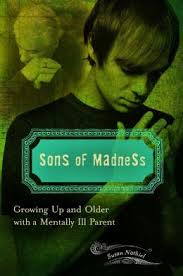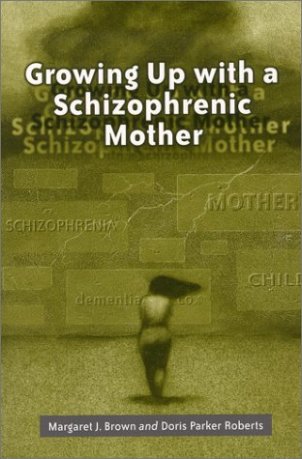Growing Up and Older with a Mentally Ill Parent
Considering the huge numbers of people who have a mental illness, their suffering and lost potential, and the tremendous cost to society, it’s high time we made mental illness a priority. Instead, it continues to be a topic we avoid. Our mental health services are shamefully and sorely lacking. Those who suffer from mental illness are not being served, nor are their families.
I’ve written about this topic before at Books Can Save a Life when I’ve featured books about families with mental illness, particularly the plight of children and adult children with mentally ill parents. (See Children of Mental Illness Part I, Children of Mental Illness Part 2, Encountering the Dark Matter of Mental Illness, and Do Genes Affect Our Mental Health?) I grew up with a mother who had schizophrenia and, as I’ve conducted research for a memoir about our family’s experiences, I’m sad to say many aspects of the mental health system are no better than they were decades ago, and mental illness carries as much stigma today as it did in the 1960s.
Today, I’d like to highlight the newly published Sons of Madness: Growing Up and Older with a Mentally Ill Parent, by Susan Nathiel, PhD, LMFT. It’s a companion volume to her first book, Daughters of Madness: Growing Up and Older with a Mentally Ill Mother. Susan (whose mother had schizophrenia) has collected here interviews with twelve men whose mother or father suffered from schizophrenia, depression, bipolar disorder, or another serious mental illness.
These are deeply disturbing stories of men who in many cases have never talked about their families or their childhood and teen years. They were too ashamed and traumatized to reveal their family secrets, and they’ve never been asked. Consider these chapter titles: “Nobody cared until my family was destroyed,” “My mother’s lobotomy saved my life,” “If you leave the house, you’ll be murdered,” “Our family code: Protect Dad at all costs,” “I called them nightly shows – all violence,” and “I should have been able to save her.” While it’s never easy having a mentally ill parent, boys and men are especially challenged by the cultural expectation that they not show their emotions.
Some of these men have healed, some have not, and all are scarred. I want to point out that most people with mental illness are not violent, but their families, including their children, must contend with a high degree of dysfunction that can be continual, extremely frightening, and traumatizing. It’s painful to read the words of these men, but what impressed me especially was their profound isolation as children. In many cases, it was impossible to get the mentally ill parent anywhere near a psychiatrist or treatment facility. Saddest of all is that extended family members and sometimes the healthy parent turned a blind eye to the needs of the children. No one helped them, and no one seemed to care.
I can’t fathom how children this neglected, with no support systems, encouragement, or empathy, can grow up to be healthy, trusting, fulfilled, and able to contribute their unique talents and gifts to society. Many do. But consider all the lost potential. I also wondered, as I read the interviews, where child abuse and addiction end and mental illness begins – my point being that I believe many children grow up contending, alone, with parents whose dysfunctions can cause lifelong damage and persist across generations, whether or not the parents are ever formally diagnosed with an identifiable mental illness.
There’s been some criticism of the many memoirs of family dysfunction that have been published in the last few decades, and accusations of whining and naval gazing. This only increases shame and makes those who’ve been affected hesitate to bring their experiences into the light of day, where solutions can be found and those who need it given relief and support.
We need to pay more attention to our children and the invisible traumas they may be contending with.
In his New York Time’s column today, Nicholas Kristof has identified mental illness as an issue that needs more attention. I hope you’ll add your thoughts about mental illness and families here in the comments or on Kristof’s blog, On the Ground. You can also visit his Facebook page and leave a comment. I welcome comments about this on my Facebook page as well.
“Be kind, for everyone you meet is fighting a hard battle.” Ian Maclaren, Scottish author and theologian







